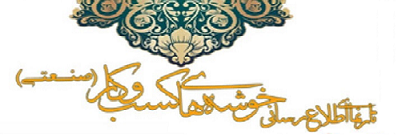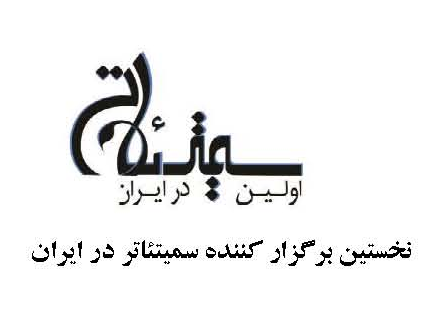صنعت خودرو در ایران- سه ماهه سوم 2015
Executive Summary
The total vehicle output of automakers in Iran increased by 2.4% year-on-year (y-o-y) to 1.64mn in the Iranian year ended March 19 2012, reports inn.ir. However, BMI has revised down its production and sales estimates for Iran’s autos industry owing to the withdrawal of many international companies from the country in the wake of global sanctions against its nuclear efforts.

Iran's domestic autos industry, which has been becoming increasingly self-sufficient in the face of international sanctions, will face its biggest test after the recent withdrawal of a number of Western carmakers. Italian carmaker Fiat has suspended sales to Iran, Zawya reports. The company said this was to support 'the efforts of international diplomacy to find a diplomatic solution to the issues relating to Iran.' The group added that over the last few years sales to the country 'have not been significant'. Iran and six world powers have recently closed two days of nuclear talks with little to show for it, the report says.
A particular test for Iran is the withdrawal of PSA Peugeot Citroen. The Peugeot arm has been a key supplier of components for leading domestic firm Iran Khodro (IKCO), but has suspended supplies and may have to rethink its position completely, following its tie-up with General Motors Company (GM).
As GM is now a 7% stakeholder in PSA Peugeot Citroen, the implications of US sanctions against Iran will extend to the French carmaker's operations. The US lobby group United Against Nuclear Iran (UANI) has called for an end to Peugeot's involvement in Iran, where IKCO builds the Peugeot 206 and 405 models. GM claims that its partner had already suspended its supplies before the agreement was signed.
UANI launched its ‘Auto Campaign’ in March 2012, citing a BMI report looking at how the enforcement of economic sanctions on Iran has resulted in the country's government prioritising the development of a strong domestic auto industry. UANI says in recent months, both Hyundai and Porsche have ended their business in Iran in response to its campaigns.
UANI has since ramped up its campaign to get foreign automakers out of Iran. It says that Fiat, Isuzu, Kia Motors, Mazda Motor, Mitsubishi Motors, Nissan Motor, Peugeot, Renault, Suzuki Motor, Toyota Motor and Volvo either export to the Islamic Republic or have manufacturing agreements with car companies controlled by the regime.
Following the release of industry data in May indicating that new car production in Iran in April dropped 27% year-on-year (y-o-y), UANI CEO and ambassador Mark D. Wallace issued a statement saying: ‘The message is clear: responsible international auto companies will not continue to work in Iran. We call on all auto manufacturers – including Fiat, Mazda, Nissan, Renault, and Peugeot – to fully end their irresponsible business in Iran. We call on Congress to pass UANI’s DRIVE Act, which would require automakers to certify they are not engaged in any business in Iran to be eligible for US government contracts.’

According to a Bloomberg report, in late May Ambassador Wallace testified about Iran’s automotive industry before the US House Foreign Affairs Committee. Ambassador Wallace called out Peugeot and its US partner GM, saying ‘Peugeot right now is a major actor in Iran, a major manufacturer inside Iran in direct partnership with the IRGC.’ He said that, while Peugeot says it suspended its business with Iran until July, Iran produced more than 15,000 Peugeot vehicles in April. At the moment, we believe the suspension is revisited on a monthly basis.
IKCO has been scaling up its domestic production operations to limit the impact of sanctions, culminating in the development of a 'national car' (the Runna) and engines to power its own vehicles, including compressed natural gas (CNG) versions to improve the fuel-efficiency of its product range. In 2011, IKCO accounted for around half of the 1.6mn units produced by the Iranian autos industry in the first 11 months of the Iranian year, ending March 2012. Rather than being deterred by the sanctions, IKCO believes it can produce 860,000 units in the new Iranian year, and export 10% of its output.
Iran's second-largest carmaker, SAIPA, has also been preparing to limit its dependence on foreign partners. SAIPA has already been forced to adjust after the withdrawal of Korean partner Kia Motors in 2010. The two had enjoyed a successful assembly agreement, which saw the Pride become one of the country's most popular models, accounting for 30-40% of all cars on the road. However, in August 2010, Kia stopped exports of completely built units (CBUs), kits for assembly and spare parts to Iran. SAIPA has since opened what it claims is the Middle East's largest production plant in Kashan to build a domestic model.
It has taken a little longer for Kia's affiliate Hyundai Motor to end its Iranian operations, but it has now done so, according to the New York Times. Although UANI has been pressing the carmaker to cut its ties since 2010, the group has only recently reclassified Hyundai as 'withdrawn' on its list of foreign businesses dealing with Iran. The report suggests that, in line with the US sanctions, foreign companies maintaining ties with Iran could face penalties in the US market. This would be a major incentive for Hyundai, which reported growth of 20% in US sales in 2011 and increased its market share from 4.6% to 5%.

It is not just the production side suffering from the sanctions, however. A government-imposed limit on foreign exchange, following a rush to convert rials to dollars in response to sanctions against the Central Bank, has pushed up the cost of buying foreign models, which are already in the country. Inventories are piling up and importers are no longer shipping models in as it is too expensive and clearing customs is taking too long.
Dealers say the price of imported cars has risen by around 20% in two months, with sales falling by a similar amount over the last year. As most of these imported cars are premium brands, it begs the question whether domestically-built cars would fill the void, even if they are more accessible.
We estimate 1.4mn vehicles will be produced in Iran in 2012, a drop of over 16% y-o-y. However, we estimate annual production growth will average 1.16% in 2013 to 2016.
'گزارش تحلیلی بیزینس مانیتور- صنعت خودرو در ایران- سه ماهه سوم 2015

